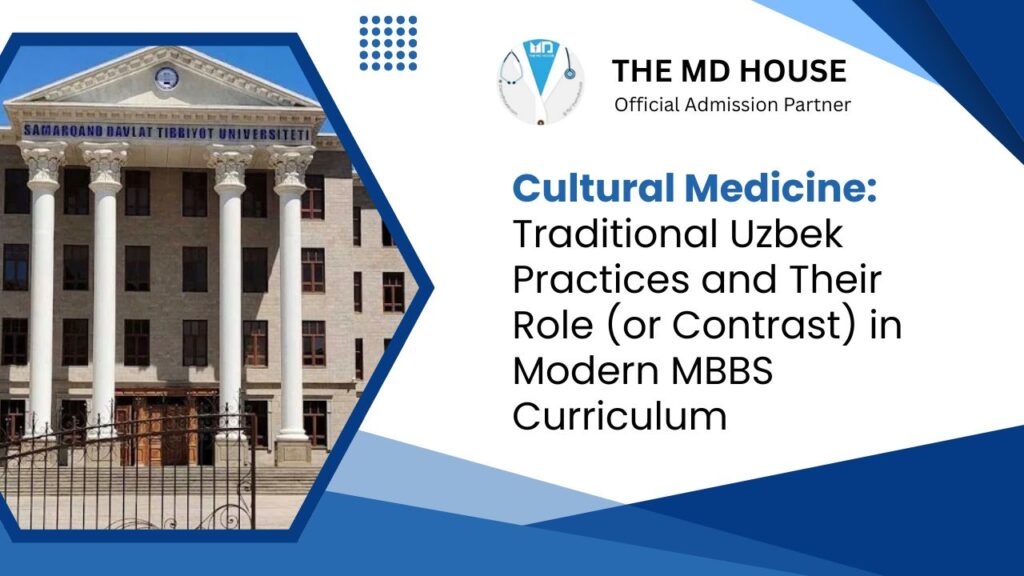
Cultural Medicine Traditional Uzbek Practices and Their Role (or Contrast) in Modern MBBS Curriculum
Uzbekistan is a hub for medical education. Students from across the globe come to study MBBS in Uzbekistan. Its MBBS curriculum is aligned with global standards framed by international bodies, especially the World Health Organization. However, the government has created cultural medicine departments in some medical colleges. They serve as centers for the development of traditional medicine.
What is the objective of starting folk medicine departments for MBBS students?
The government wants the senior MBBS students to get a basic education in traditional medicine. Experienced teachers are employed to train medical practitioners in traditional medicine. However, there is a stark contrast between modern and traditional medicines.
Key characteristics of the MBBS curriculum
Structured Learning: Uzbekistan offers a six-year MBBS program. It includes both academic studies and practical learning. The first five years include classroom education, where students attend lectures led by experienced teachers. The sixth year includes a mandatory internship in selected hospitals. Students learn advanced skills under the supervision of seasoned doctors and surgeons.
Experienced-Based Practice: Inspired by biomedical science, the MBBS curriculum is based on anatomy, pathology, pharmacology, and other disciplines. The entire course relies on rigorous scientific evidence for diagnosis and treatment. Students are trained to follow a strict discipline for quick decision-making.
English Medium Education: English is the medium of education for the MBBS course. It facilitates international students who come here in search of quality education at an affordable price. Uzbekistan colleges follow the international standards of teaching to maintain a high reputation among world medical colleges.
Standardized Patient Care: Uzbekistan medical colleges emphasize modern techniques for diagnosing problems and follow internationally accepted patient care models. Colleges have ultra-modern laboratories to teach human anatomy. They also have modern machines to learn how to diagnose the level and severity of problems.
Points of Contrast between Cultural Medicine and MBBS in Uzbekistan
Scientific Validity: Traditional Uzbek medicine relies on treating symptoms with medicinal herbs. It also includes treatment with Duas (prayers) or healing rituals. These treatments have no scientific basis compared to modern medicine.
Curricular Prioritization: Traditional herbal medicine is a short course compared to a six-year MBBS program. Traditional practitioners learn to diagnose problems with symptoms and prescribing herbal medicines according to diagnosis.
Methodology and Philosophy: MBBS is based on allopathic principles of diagnosis and treatment. Modern doctors and surgeons rely solely on biomedical science. On the contrary, cultural medicine incorporates a holistic and spiritual approach.
Regulation and Oversight: MBBS students learn to practice medicine under a strict regulatory framework. However, traditional practitioners follow rituals and customs. The government has little control over traditional healers, who work from remote areas and provide limited patient care.
Conclusion
Studying MBBS in Uzbekistan for Indian students is a unique experience, as they learn both modern and traditional medicine. The Uzbekistan government has introduced cultural medicine to the MBBS curriculum to bridge the modern and traditional disciplines. However, modern and traditional medicine have different disciplines.

0 Comments